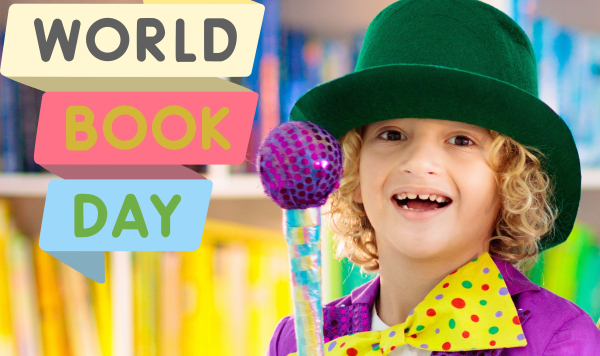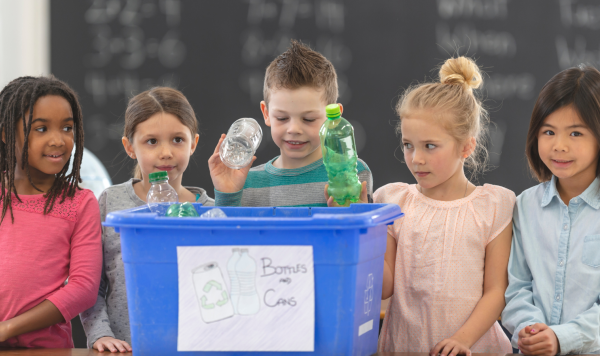Enrich your student’s learning experience by imparting onto them the importance of conserving the planet’s resources and living more sustainably.
Why?
As we know, most of us will learn behaviours and habits in school that we take with us into adulthood. Therefore, children who engage in sustainable waste behaviours, such as reducing, repairing and recycling from an early age, will have a better chance at continuing to have a positive impact on the environment for the rest of their lives.
Engaging students in the school environment at a young age, in a variety of different ways, opens their eyes to how important their habits and waste are on the planet.
How?
Introducing the topic of waste prevention into the curriculum can be done in a variety of ways, is suitable for all ages 4 and up, and goes far beyond just a PowerPoint presentation. Here are some ideas on how you can cover the topic (with our help!):
Conduct educational lessons and activities within the classroom to highlight important topics and things everyone can do to minimise their waste.
Check out the Education Hub on our website for lesson plans, inspirational videos, and useful resources on 6 different topics related to waste for some inspiration on where to start. These are:
Get creative!
Why not get the class making a short film to educate others on the importance of reducing their waste, or recycling properly?
Filmmaking is an engaging and fun form of media to get your students thinking about recycling and communicating effectively.
Recycle Now ran a competition for children aged 4-11 to get involved in – The Action Pack – where the challenge was to produce either a poster or film to educate the older generation on recycling. Check out the video of last year’s winning entry by Queensbridge Primary school below!
Run activities relating to focus weeks throughout the year, for example:
Food Waste Action Week, 4th-10th March 2024
Love Food, Hate Waste brings people, businesses, public bodies, and global partners together to have conversations about food waste and equip us with the tools to cut down our own.
Check out their website for resources and activities you could run in your classroom/school to get discussions going about food waste and taking actions against it.
Conduct a waste audit at the school/in your classroom and get the students involved.
This is a great way to bring the topic of waste directly into the classroom/school and discover what goes into your rubbish and recycling bins most. Check out Waste Buster’s how-to guide to conduct a waste audit for Key Stages 1 & 2, with handy worksheets for the pupils to follow.
We can help guide you through this process and be here to discuss infrastructure improvements and general interventions that could be made to improve (and reduce) the waste situation in your school!
Go outdoors!
Studies show that those who are connected with nature are more likely to be mindful about their waste behaviours and impacts on the planet. We suggest going out to your local park or even further afield, like Walthamstow marshes, to take in the nature.
Organise activities around biodiversity spotting, such as scavenger hunts or plant/insect bingo. Scouts have a great activity plan for organising a natural treasure hunt which makes sure there’s plenty of reflective work so the pupils think about how they feel in the outdoors.
You could also relate activities to litter observations or, even better, arrange a litter pick in an area.
Visit our Eco Park, also known as the North London Heat and Power Project (NLHPP), in so students can see in real life where their rubbish goes and how it’s turned into energy-from-waste.
See the NLHPP Schools Programme webpage for more information on the tours and the individual sessions it runs with school students, covering the below topics:
-
Recycling and Waste
-
Energy from Waste
-
Delivering a Large-Scale Construction Project
-
Career Insights
Please email NLHPP@NLWA.gov.uk if you are interested in participating.
Finally, get the whole school involved!
Recycle Now have a great resource page explaining how it’s not just the responsibility of the teachers to get the pupils involved in waste prevention efforts – it's a whole school effort.
Examples include how the cleaning and kitchen staff play significant roles in making sure the right materials get recycled in the school, as well as the head teacher and board who ensure there is a culture of recycling and waste reduction instilled in the school.
 Change to EcoPark RRC opening hours on Sunday 27 April
Change to EcoPark RRC opening hours on Sunday 27 April




